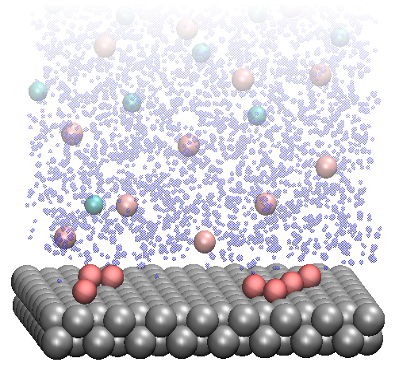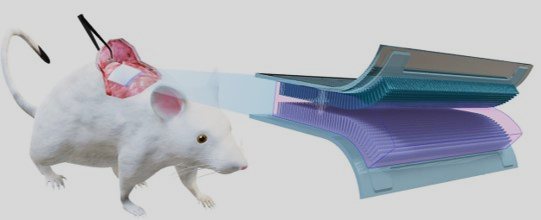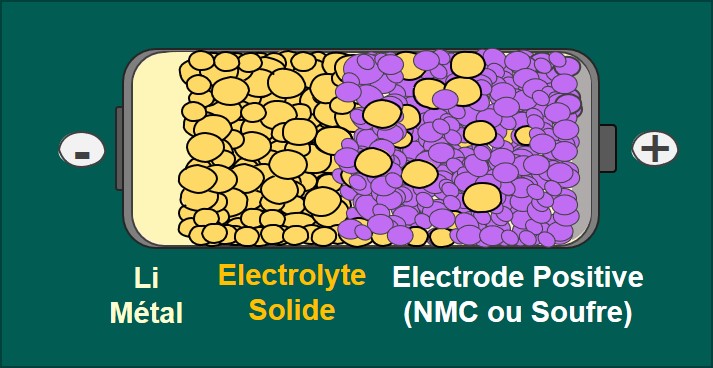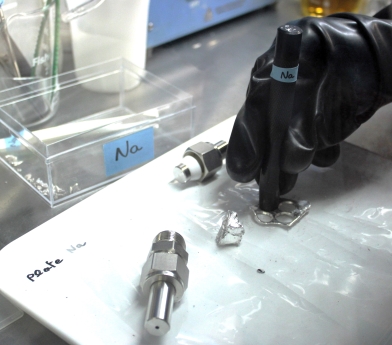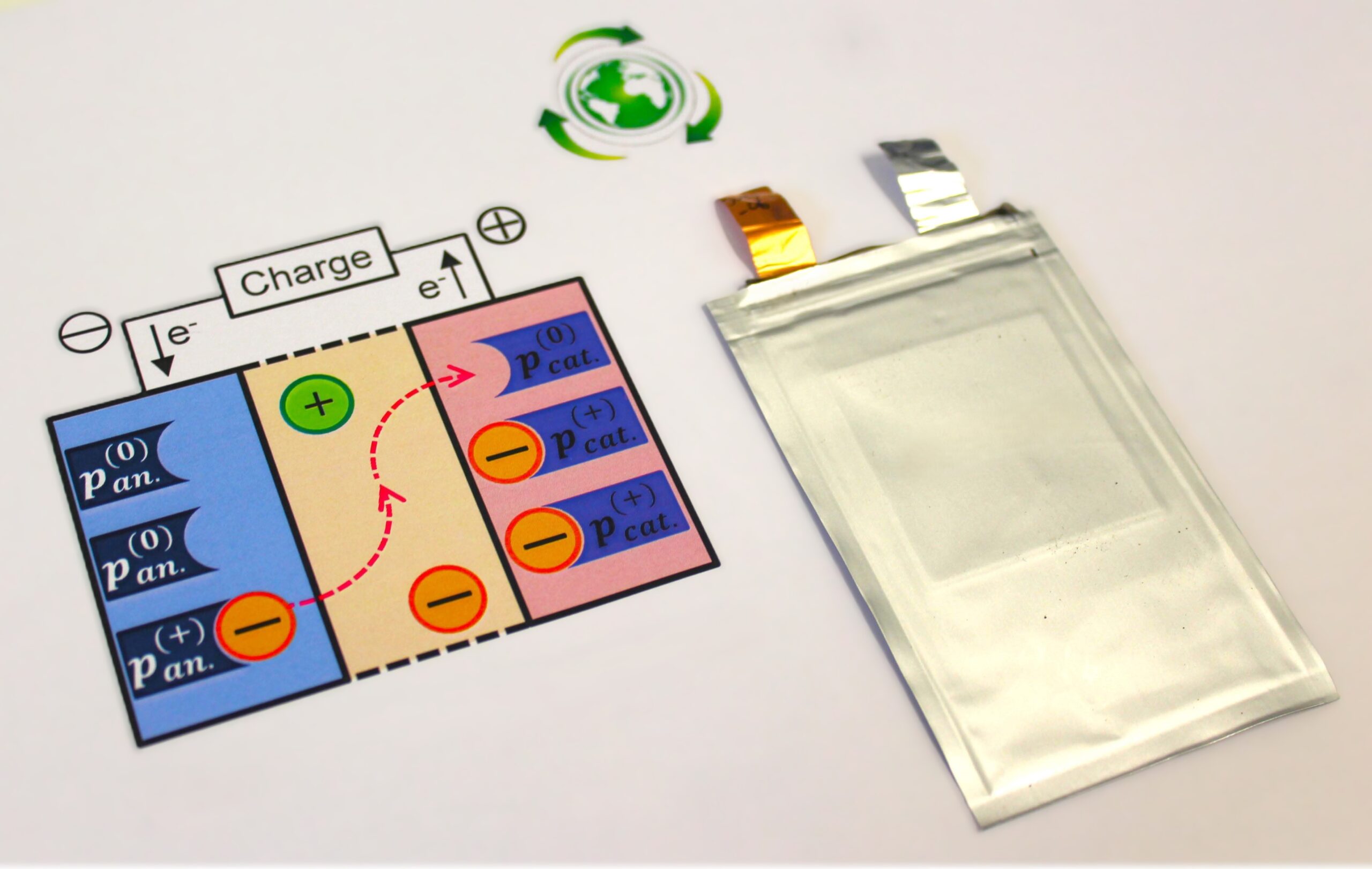
SONIC
All-solid-state organic anionic battery
Overview
Proof of concept for a durable all-solid-state organic anion battery
Prof. Philippe POIZOT (IMN, Nantes University / CNRS)
The SONIC project aims to develop electrochemical energy storage without relying on metals by using exclusively organic materials. It is organized around a multidisciplinary technical and scientific platform that will provide innovative, durable organic electrode materials for anion insertion (of the “p-type”) that are compatible with single-anion polymer electrolytes, enabling the creation of all-solid-state anionic battery prototypes. Starting from a TRL1, the goal is to demonstrate the concept of all-solid-state molecular anionic batteries targeting over 2 V of output voltage while addressing scalability issues for future commercialization (with a TRL3 targeted by the end of the project).
Keywords
Organic anion-ion batteries, eco-design, organic anion insertion electrodes, all-solid-state anionic electrolyte
Tasks
Our research
(Eco-)Design, development, characterization, and electrochemical performance of anion insertion materials for positive electrodes
Building on principles of eco-design and green chemistry, this task involves the design and synthesis of new materials based on phenothiazine and thianthrene that can operate at potentials higher than 3.7 V vs Li+/Li.
(Eco-)Design, development, characterization, and electrochemical performance of anion insertion materials for negative electrodes
This task, analogous to the previous one, aims to design and develop electrode materials capable of inserting anions at potentials below 2.0 V vs Li+/Li, based on disruptive molecular engineering compared to the current state of the art.
(Eco-)Design, development, characterization, and anionic conduction properties of polymer electrolytes
This task involves the synthesis and characterization of unipolar anionic conduction electrolytes. To achieve this, polymers and polymer networks bearing cationic functional groups (such as alkylammonium, imidazolium, etc.) will be synthesized. Their chemistry will be tailored to meet the application requirements: anionic shuttle transport properties, chemical and electrochemical stability within the cell’s potential range, low dissolution of organic active materials, and mechanical properties. Flexible chain segments will be prioritized, and the cross-linking density and cationic functionalization rate will be adjusted to optimize these properties.
Advanced formulations of active layers for battery prototypes
This task involves the development of organic battery prototypes in pouch cell format, which includes: 1) optimizing the formulation of positive and negative electrodes with the selection of non-electroactive additives to adjust electrical and mechanical properties; 2) optimizing the manufacturing conditions for the electrodes and the prototype, addressing the interfacing of the polymer electrolyte with the electrodes. The goal is to ensure that the prototypes deliver the best possible electrochemical performance.
Advanced and multi-scale characterization of the components and prototype of the anionic battery
This task aims to characterize organic electrode materials (p-type) in situ or post-mortem during charge/discharge cycles to determine the mechanisms of electrochemical reactions and identify their limitations. Additionally, advanced characterizations will be performed at the electrode scale to analyze the behavior of radical intermediates, particularly using Electron Paramagnetic Resonance (EPR) spectroscopy. Finally, the cell will also be equipped with reference electrodes to optimize its electrochemical performance (balancing, choice of voltage terminals).
The consortium
4 academic laboratories, 2 CEA institutes, IFPEN
New materials will be developed during the project, including innovative anionic insertion materials for positive and negative electrodes, as well as new formulations of solid anionic conduction electrolytes. Specific formulation work will also be conducted for this innovative chemistry, leading to the manufacture of organic anionic battery prototypes in pouch cell format. This study will enable the development of safer and more sustainable chemistry that aligns with several green chemistry concepts. Additionally, it will lead to the acquisition of new skills in synthesis, characterization, and scaling-up processes.
Composed of elements that are naturally and intrinsically abundant (C, H, O, N, and even S), organic compounds can be prepared using low-energy synthesis chemistry, potentially incorporating bio-based reagents, and completely avoiding the use of metallic elements. Their recycling scheme can also be significantly simplified, potentially involving just the straightforward destruction of the battery by combustion at the end of its life.
Training of 5 PhD students and 1 postdoctoral researcher
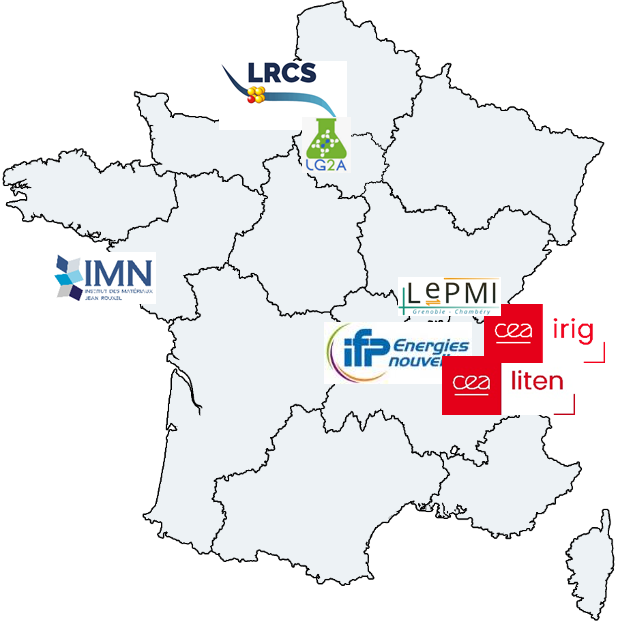
Les autres projets PEPR
